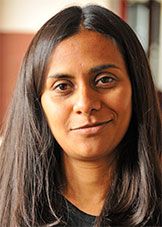Speakers

Ankur Jamwal
College of Fisheries and Centre of Excellence on Water Management | Dr. Rajendra Prasad Central Agricultural University | Pusa, India

Natasha Mhatre
Western University, Department of Biology

Gino Di Censo

Safa Ahmad

Isaac Kwong

Naureen Siddiqui

Shaila Khan
York University

Mark Adkins
York University, Department of Psychology

Bernard Marius 't Hart
York University, Department of Psychology